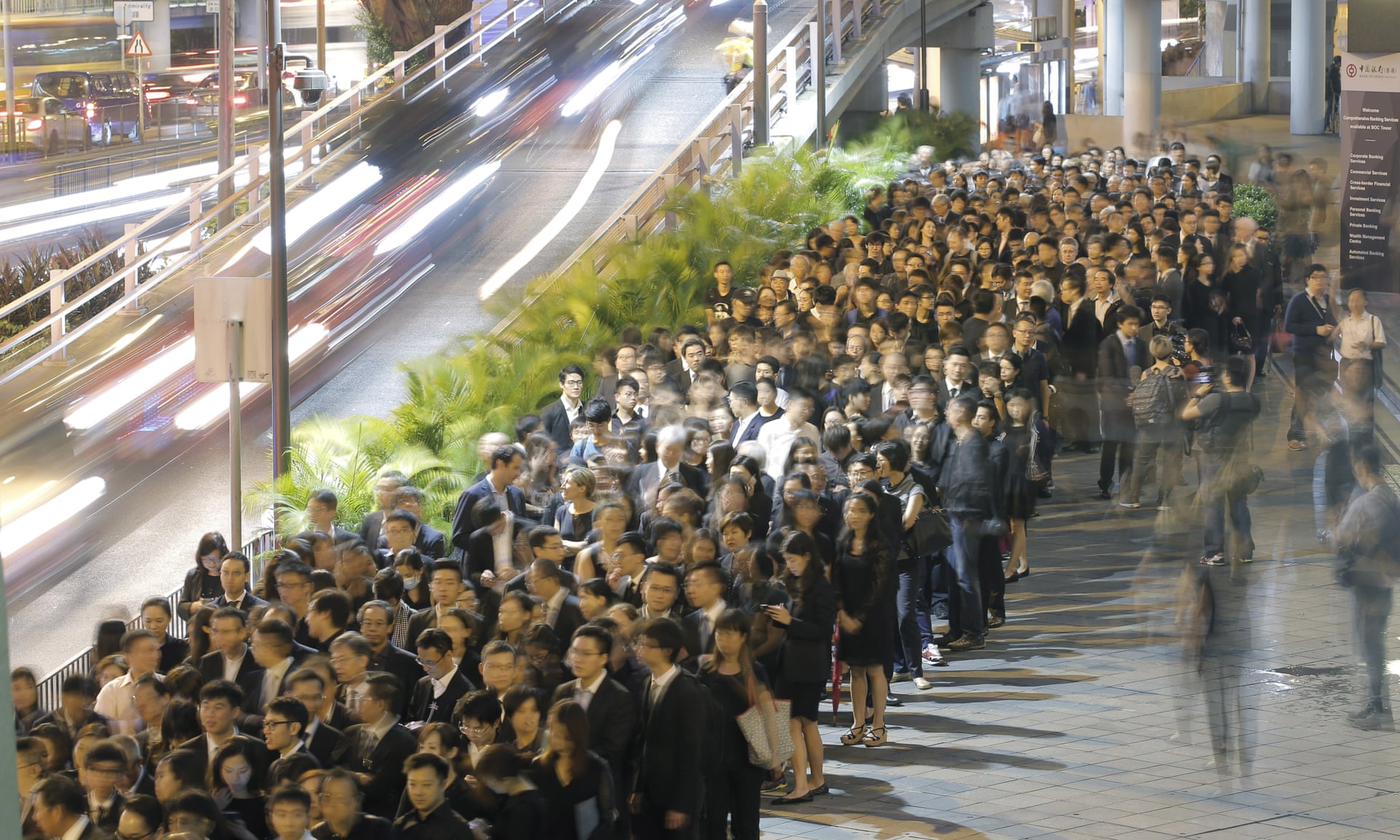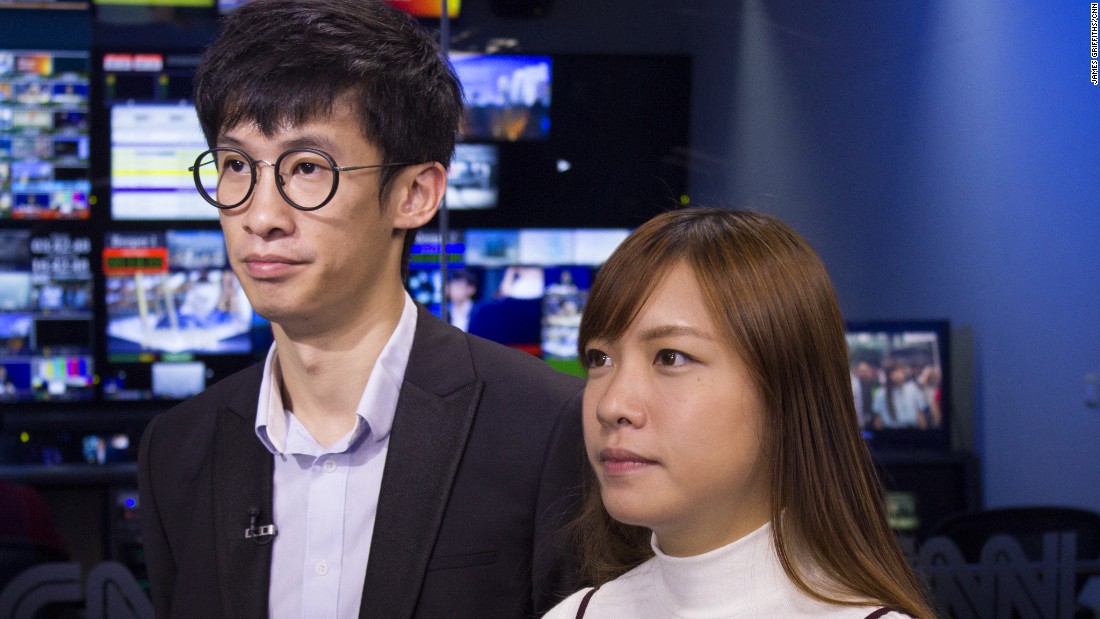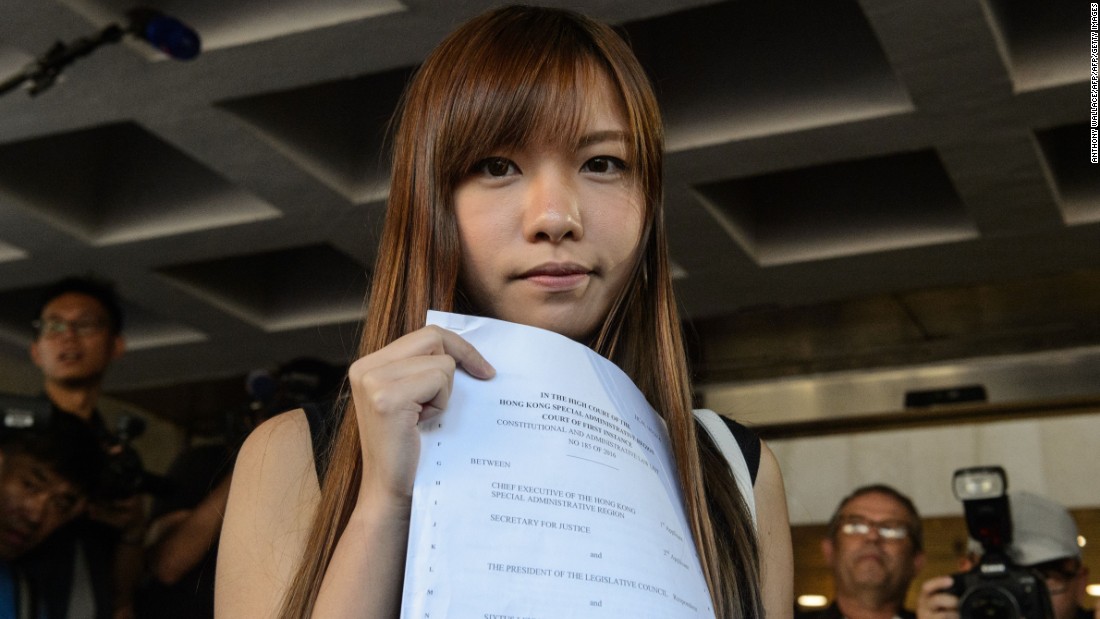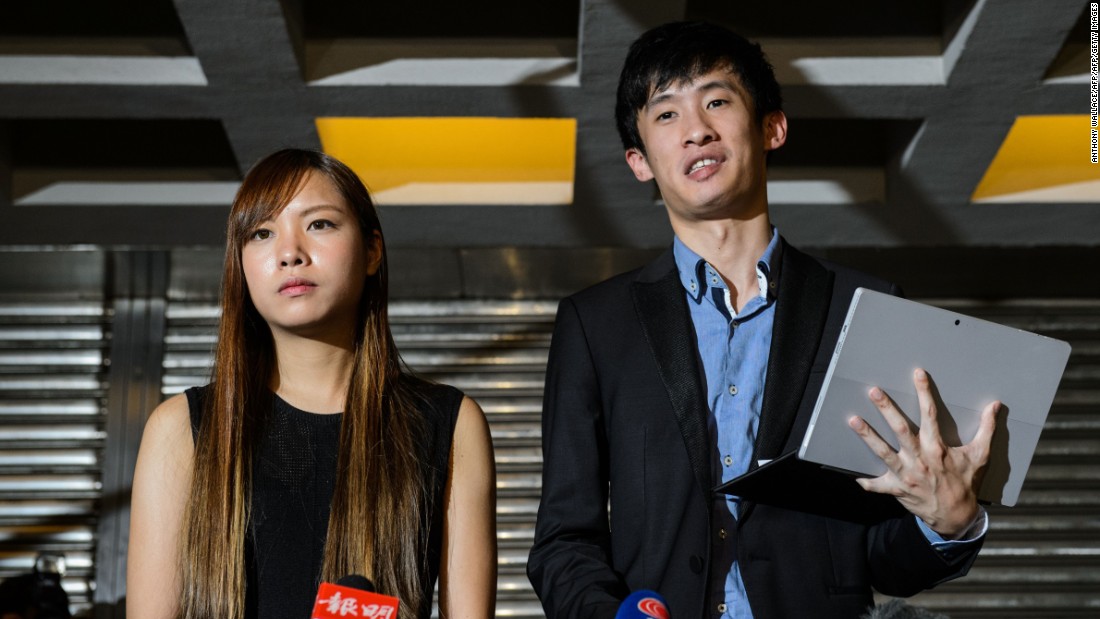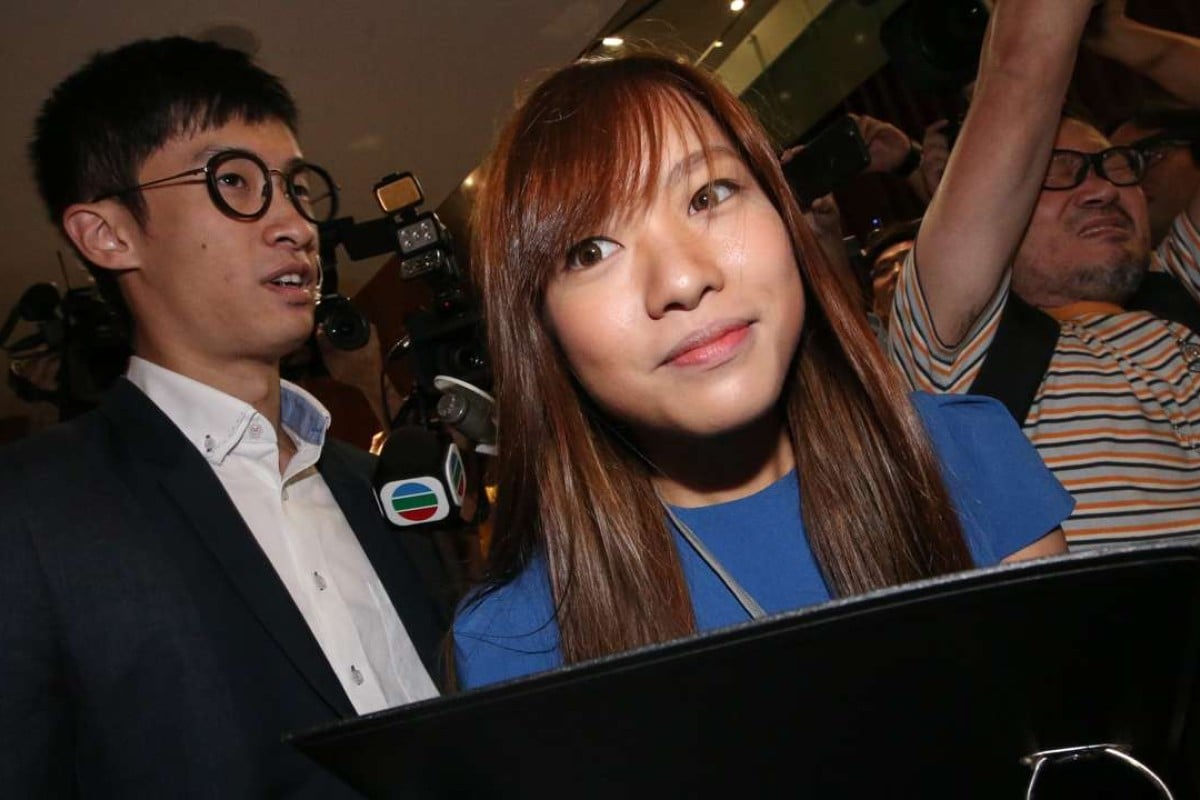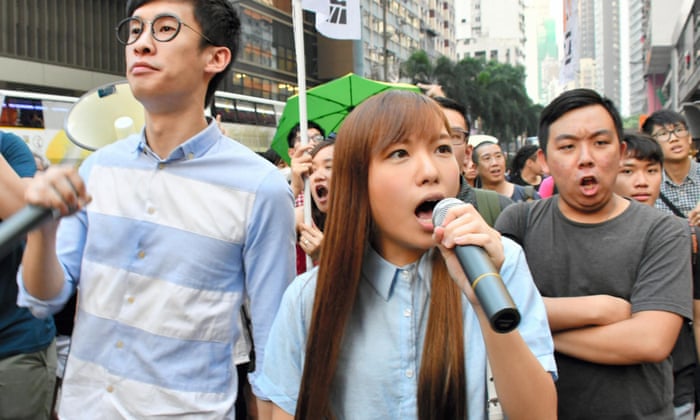By Helier Cheung

Yau Wai-ching is the youngest woman to be elected to Hong Kong's parliament -- and she has been called many things, including: "radical", "goddess", "spy", "pretty" and "cancer cell".
In the space of two months, the 25-year-old has become one of the most controversial politicians in Hong Kong -- and is now pitted in a court battle against the Hong Kong and Chinese governments -- even though she has admitted it could bankrupt her.
Ms Yau and fellow party member Sixtus Leung won elections in September, gaining more than 55,000 votes between them.
Ms Yau, a daughter of two civil servants, had little previous political experience, and made headlines for edging out a veteran politician to win a seat.
The Chinese Studies graduate had been involved in the 2014 pro-democracy protests, when tens of thousands of people, including large numbers of students, took to the streets demanding fully democratic elections in Hong Kong.
She describes the protests as an important part of her political awakening.
After the movement failed to win any concessions from Beijing, Ms Yau and Mr Leung became involved in a new political party -- Youngspiration -- that campaigns against mainland China's influence on Hong Kong, and advocates a "Hong Kong first" approach.
The party struck a nerve with many young Hong Kongers unhappy with China and disillusioned with traditional pro-democracy parties, who they argue have failed to achieve any reform.
But, after their election victory, things quickly spiralled out of control.
Ms Yau and Mr Leung sparked a furore when they were being sworn in last month.
Instead of pledging allegiance to the "Hong Kong Special Administrative Region of the People's Republic of China", the duo swore allegiance to the "Hong Kong nation", used a term considered derogatory towards China, and displayed a banner that read "Hong Kong is not China".
Their oaths were invalidated, and thousands of people protested against their actions, demanding they be removed from parliament.
A top Chinese official even likened the duo to "two cancer cells -- if you don't care about it, it will continue to hurt your body".
The Hong Kong government launched a court case to disqualify them.
And the Chinese government also decided to intervene -- issuing a controversial interpretation of Hong Kong's law on oath taking, to say that any oath that is not "sincere" should be automatically disqualified.
After losing the court case, Ms Yau and Mr Leung were disqualified as legislators -- and are now also bombarded with angry comments on social media, where people accuse them of being useless, politically naïve, or insulting their country.
But for all the controversy surrounding her, Ms Yau comes across as mild-mannered and determined in person -- and less slick or media trained than many other politicians.
"We know that appealing the court decision will cost a lot," she says.
"We may face bankruptcy, but we have no choice."
She is concerned that if the case is not challenged, it may set a legal precedent for other pro-independence legislators to be disqualified, which would allow the government to "negate the results of a democratic vote".
She says she believes in independence for Hong Kong because the "One Country, Two Systems" model under which it is governed, after it was handed back to China from the British in 1997, is "a failed experiment".
Despite the model, which promises Hong Kong a high degree of autonomy, "in these few years we have seen the PRC [People's Republic of China] government having direct interventions into the internal affairs of Hong Kong".
"We have to find another way to solve this problem," she says.
"One solution may be independence -- or maybe we can find another kind of solution, but right now I can't think of any other solutions."
It is true that there has been growing anger in Hong Kong at perceived Chinese involvement in its affairs.
In particular, the disappearance of five Hong Kong booksellers who published books critical of mainland China in late 2015 sparked concerns over Hong Kong's future.
Hong Kong relies on China for much of its food and water supplies -- as well as much of its trade -- and the Chinese government has shown that it has zero tolerance for moves towards independence from any of its territories.
Veteran democracy activist Martin Lee said he felt suspicious of Ms Yau and Mr Leung's actions, saying that they are "giving [Beijing] the excuse" to destroy Hong Kong's judicial independence.
Some have even accused Ms Yau and Mr Leung of secretly working with Beijing to undermine Hong Kong's pro-democracy movement.
Ms Yau flatly denies this, and says her party has faced such accusations ever since it was founded.
"There are no external forces telling us what to do, to make long term plans, or betray Hong Kong."
Looking amused, she adds: "If we really were undercover agents, surely we'd still be in the legislative council -- we wouldn't have let ourselves get kicked out, would we?"
Ms Yau is known for being outspoken.
She supported gay marriage in her election campaign -- despite receiving criticism for it -- and also raised eyebrows when she said that Hong Kong's housing shortage meant that young people had "no room to bang".
But a lot of the comments about Ms Yau have focused on her gender and appearance, rather than her policies.
One newspaper wrote articles about what she wore to rallies, highlighting what they called her "protest look", while others nicknamed her "goddess" in reference to her appearance.
And the sexism appears to have stepped up a notch since the oath-taking controversy.
At one pro-Beijing protest, demonstrators stuck a photo of Ms Yau on a sex doll -- and internet commentators have shared photos of Ms Yau's dress being hiked up during a scuffle in parliament.
Ms Yau says she believes the sexist attacks are "not because of my gender -- it's because my ideology is different from theirs".
However, experts have argued that the remarks are indicative of gender stereotyping in Hong Kong media -- and worry that they could put off other women from entering politics.
As for Ms Yau, she says she will continue to work to fulfil her campaign pledges -- even if she loses her appeal and her seat in parliament.
"The fact is that many Hong Kongers take [independence] as an aim for the future of Hong Kong," and the government can't ignore those voices, she says.
"I hope in the future, Hong Kong people have the power to choose their destiny and the future they want -- whatever it is they decide to choose."

